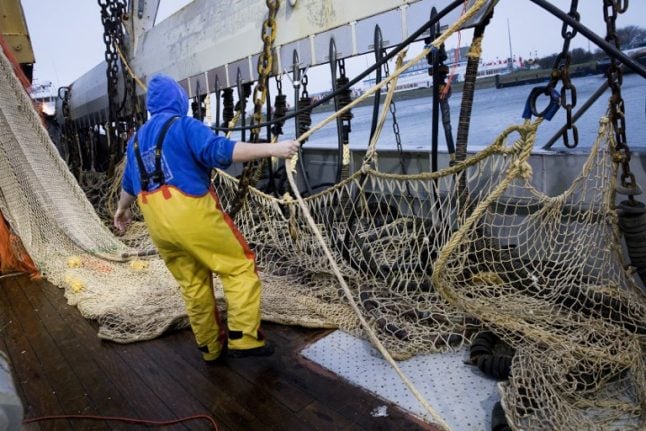A dozen fishing vessels from Calais and the nearby port of Boulogne-sur-Mer fanned out in front the pier, an AFP reporter at the scene said.
A spokeswoman for P&O ferry company said two car ferries were waiting in the English port of Dover to cross the Channel and two others were stuck in Calais.
Danish shipping company DFDS, which also runs ferries between France and Britain, said two of its vessels were delayed in Dover and one in Calais.
The Dover-Calais route is one of the busiest shipping routes in Europe.
Fishermen also blocked a road leading to the port of Boulogne-sur-Mer, about 30 kilometres (20 miles) southwest of Calais, AFP witnessed.
Pulse fishing involves dragging electrically-charged lines just above the seafloor that shock marine life up from low-lying positions into trawling nets.
The method has been adopted in particular by Dutch vessels fishing for sole, raising the hackles of the French, who argue that it harms fish stocks.
The French push for a ban received a boost earlier this month when the European Parliament voted in favour of outlawing the practice.



 Please whitelist us to continue reading.
Please whitelist us to continue reading.